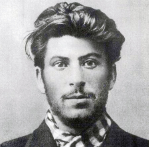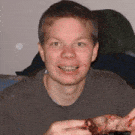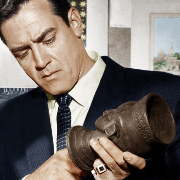|
poo poo POST MALONE posted:toys r us had a mascot named Geoffrey. was he mossad? Literally almost everyone is a mossad asset. What can I say, they really are the best at this game.
|
|
|
|

|
| # ? May 24, 2024 05:20 |
|
Still can’t stop thinking about like six separate publications publishing editorials comparing Epstein to Sandra Bland to prove that suicides are normal and common in prisons.
|
|
|
|
comparing epstein to Sandra bland is like if they brought up darren Wilson’s acquittal to argue that police brutality isn’t a problem
|
|
|
|
poo poo POST MALONE posted:toys r us had a mascot named Geoffrey. was he mossad? do giraffes have hyoid bones
|
|
|
|
taqueso posted:Literally almost everyone is a mossad asset. What can I say, they really are the best at this game. I am a Mossad asset (a mossasset if you will) and you are all going down!!! everyone who failed to get this thread gassed: I will see you in my office (my office is a helicopter over the sea)
|
|
|
|
Mariana Horchata posted:Jeffrey Epstein
|
|
|
|
inferis posted:Still can’t stop thinking about like six separate publications publishing editorials comparing Epstein to Sandra Bland to prove that suicides are normal and common in prisons.
|
|
|
|
Atrocious Joe posted:do giraffes have hyoid bones lol reminds me I was watching jeopardy on netflix (sorry for the self tweet, it's where I have the image available easily) and hyoid bone was a clue lol https://twitter.com/RecreationalAn1/status/1201633895898370048?s=20
|
|
|
|
Helsing posted:It is possible that this all started with Wexner and that Epstein's time at the Dalton School and Bear Sterns were just the sort of weird coincidences that happened back in the 70s. Especially since Wexner has his own weird links to the shadowy world of the Bronfmans, the Canadian bootlegging dynasty who got rich working with Meyer Lansky during prohibition. So yeah not only did Wexner have money and access to women he also had connections to the world of organized crime. I think it's reasonable he had at least some level of contacts with at least one intelligence service by the time of his first arrest, I'm just not particularly convinced they were responsible for his rise - iirc his pops had connections at the Dalton school which explains that adequately, rich people have done dumber and weirder things than hire their kid's favorite teacher for entry level hedge fund flunkeying, and from there him getting in good with Wexner (possibly in the course of Epstein's money crimes, or possibly just contemporaneously) isn't unreasonable, and we're off.
|
|
|
|
Atrocious Joe posted:do giraffes have hyoid bones that’s a whole lot of neck
|
|
|
|
Fun fact, giraffes can't hang themselves without breaking their hyoid bone, it's physically impossible.
|
|
|
|
Giraffrey Epstein
|
|
|
|
gradenko_2000 posted:Giraffrey Epstein
|
|
|
|
where ghislaine maxwell
|
|
|
Al! posted:where ghislaine maxwell She inexplicably fell off a boat. It's quite sad, really.
|
|
|
|
|
I don’t have the patience to find it, but special commendations to the goon who parodied the MASH theme (“Suicide Is Painless”) with Epstein. and old men break their neck bones with their knees In all of my cracking and pinging I have not laughed harder at something Epstein-related
|
|
|
|
GreyjoyBastard posted:I think it's reasonable he had at least some level of contacts with at least one intelligence service by the time of his first arrest, I'm just not particularly convinced they were responsible for his rise - iirc his pops had connections at the Dalton school which explains that adequately, rich people have done dumber and weirder things than hire their kid's favorite teacher for entry level hedge fund flunkeying, and from there him getting in good with Wexner (possibly in the course of Epstein's money crimes, or possibly just contemporaneously) isn't unreasonable, and we're off. whoa whoa whoa who the gently caress do you think you are coming into a place like this and saying poo poo like that?
|
|
|
|
double post
|
|
|
|
GWBBQ posted:Why are these blinds in 2018? What is this? quote:Last week an 82-year-old household name was arrested as part of Operation Yewtree, set up to look into sexual abuse claims following the Savile investigation. The article just ends abruptly with no further elaboration let alone naming the "household name"? What?
|
|
|
|
Hmm...quote:Jeffrey Epstein was a Mossad asset who was used by Israeli intelligence to blackmail American politicians, according to a former Israeli spy.
|
|
|
|
Surprising absolutely nobody, artists and actors are pretty bad people
|
|
|
|
Yewtree still grabbing people six years later?
|
|
|
|
Antifa Turkeesian posted:Yewtree still grabbing people six years later? Article's from 2013 my guy.
|
|
|
|
GreyjoyBastard posted:I think it's reasonable he had at least some level of contacts with at least one intelligence service by the time of his first arrest, I'm just not particularly convinced they were responsible for his rise - iirc his pops had connections at the Dalton school which explains that adequately, rich people have done dumber and weirder things than hire their kid's favorite teacher for entry level hedge fund flunkeying, and from there him getting in good with Wexner (possibly in the course of Epstein's money crimes, or possibly just contemporaneously) isn't unreasonable, and we're off. I've never heard of Epstein's father - who worked for the NYC Park's Department - having a connection at one of Manhattan's most elite schools. Do you have a source for that? As for the rest: you're right, everything about Epstein's career in the 1970s and 80s is possible to explain with more mundane reasoning. It's just the sheer number of overlapping coincidences combined with the knowledge of where his career would subsequently take him. I'm curious to know what your thinking is regarding Epstein and Wexner's acquisition of Southern Air Transport or Epstein's close relationship with Maxwell.
|
|
|
|
Perry Mason Jar posted:What is this? edit: It was Rolf Harris https://www.bbc.com/news/uk-22212131 GWBBQ has issued a correction as of 19:38 on Dec 7, 2019 |
|
|
|
Helsing posted:I've never heard of Epstein's father - who worked for the NYC Park's Department - having a connection at one of Manhattan's most elite schools. Do you have a source for that? It's possible I misremembered that first thing. I find Maxwell and her relationship with Epstein super interesting and don't really have an opinion on how strong a link she had with Israel / Mossad other than "probably not zero". Scuttlebutt is that she actually was super into Epstein and was annoyed he never popped the question, lol, so maybe the causation flows in the other direction and any interaction with her shadowy contacts was her trying to help her boyfriend out. Weird evil power couple thing. The SAT thing definitely feels like, at minimum, a favor they were doing for one or more somebodies.
|
|
|
|
Colonel Cancer posted:Surprising absolutely nobody, artists and actors are pretty bad people A depressing realization for me was when I came to understand that a huge number of creative people are extremely broken psychos and narcissists who make art instead of go to therapy.
|
|
|
|
The following excerpts are taken from a book called "Prelude to Terror" by a mainstream journalist named Joseph J. Trento. I am not necessarily endorsing everything Trento writes but I thought it would be helpful to quote from a comparatively mainstream reporter who has a bunch of experience doing interview and digging up dirt for well established venues like 60 Minutes, Nightline, CNN, NPR and Meet the Press. I urge people to read these excerpts in full because I think they provide very helpful background information about how the CIA was changing during the 1970s and 1980s. Increasing scrutiny from Congress and the first revelations about some of the CIA's illegal activities on domestic soil combined with the general pessimism of the 1970s era American establishment to create an atmosphere in which huge expansions of the CIA's 'off book' operations were used to evade government scrutiny and secure large pools of unregulated funding. In particular pay attention to the references to the Bank of Credit and Commerce International. I will follow this post with some quotations from a senate report on the BCCI: Prelude to Terror: Edwin P. Wilson and the Legacy of America's Private Intelligence Network, 2006, Joseph J. Trento, Chapter 13, Politicizing Intelligence, p. 92-98 posted:Politicizing Intelligence Prelude to Terror: Edwin P. Wilson and the Legacy of America's Private Intelligence Network, 2006, Joseph J. Trento, Chapter 14, Bush and the Safari Club, p. 99-106 posted:ONE OF GEORGE BUSH'S most significant accomplishments
|
|
|
|
The following is a taken from a senate report on the Bank of International Credit and Commerce authored by John Kerry and Hank Brown. The full report runs over 500 pages long so I haven’t had a chance to read it yet. The key thing to understand here is that the foundation of the BCCI coincides with the creation of something called the ‘Safari Club’, an organization set up after Watergate to allow continued covert operations that were beyond the reach of Congressional oversight and discussed in the excerpts from ‘Prelude to Terror’ that I posted above. You could also do worse than perusing the wikipedia page. I’m struck by how similar this seems to aspects of the Epstein case. In addition to many of the same names and countries and organizations being implicated there is also the use of financial organizations to help cover the transfer of narcotics, weapons, money and people. Also note the use of prostitutes and in particular teenage or prepubescent children to gain control of influential individuals. Again, this is all happening just before or concurrent to the start of Epstein’s career. I quote all this mostly to emphasize that at bare minimum Epstein’s operations closely resemble the kind of honeypot organizations that the intelligence networks he is most closely connected to were known to be running at exactly the moment that Epstein’s career took off. Once again all circumstantial but nevertheless the parallels are quite interesting. quote:EXECUTIVE SUMMARY I'm skipping past this section but it's interesting to note that this report describes how during the late 1980s the Miami DA was instrumental in obstructing investigations of BCCI whereas the New York DA was instrumental in bringing a case against BCCI and inadvertently brought about the bank's closure. I point this out because while this may just be a coincidence it's interesting that the Miami authorities were instrumental in covering up for Epstein at multiple points whereas it was the New York DA who finally triggered his downfall. quote:7. THE CIA DEVELOPED IMPORTANT INFORMATION ON BCCI, AND A few other suggestive tidbits from the report: quote:In his July 29, 1992 indictment of BCCI's former heads, Agha Hasan Abedi and Swaleh Naqvi, quote:Prostitution
|
|
|
|
GreyjoyBastard posted:It's possible I misremembered that first thing. Consult the sources I posted and see if they change your intuition at all. I find your perspective understandable and also helpful because threads like this require skeptical voices and demands for evidence to keep them grounded. A dialogue between people who do not fully agree or share all the same views is generally preferable to an echo chamber where any dissent is treated with open hostility. One thing I'd urge you to consider is that the kind of power game Epstein and Wexner were playing was exceptionally dangerous. For Epstein and Wexner to have freelanced their way right into the middle of this clandestine world of child prostitution and narcotics and arms trafficking without any kind of institutional backing or support seems a tad implausible don't you think? Just think of it as you would any other major criminal organization: if a new drug cartel or human trafficking ring suddenly appears in an over-saturated market you would expect them to be challenged. We call cartels cartels for a reason after all. If Wexner and Epstein were really just a couple of horny American businessmen then I'm skeptical that they could have survived for years playing such a dangerous game. It feels like the equivalent of a Wall Street trade just randomly quitting his job to become a mafia don: unless you're already part of the club you're just asking to get killed. I don't want to set too much stock in a line of thinking that is inherently speculative but thoughts like that one are why I struggle with the notion that this affair was strictly limited to Epstein and Wexner.
|
|
|
|
I mean, I suspect Wexner already had those connections, and acquired them in the course of becoming a (genuinely good at his moderately evil day job) marketing mogul who by definition needed to involve himself with skeezy financiers and skeezier international modeling stuff and so on. If anything, him being a notionally aboveboard rich guy other than the sex trafficking adjacent stuff (and let's be frank, relatively few shits are given by the population at large about modeling industry exploitation TODAY) makes him more useful for Money Favors a la the airline thing. The Dalton school thing is definitely the weirdest point in the pre-Wexner process (esp since I couldn't find anything about Seymour Epstein there on a quick skim just now so *shrug* guess I was wrong or remembered an unsourced remark or something), but assuming there was something nefarious going on there just pushes the mystery back a step - why would the CIA recruit a random-rear end college dropout to go teach math at an elite school as part of a decades-long scheme? Why would they recruit this particular random-rear end college dropout? On the other hand, there are obviously LOTS of reasons for them to at least cultivate loose ties with Les Wexner's sex trafficking protege who is also a financier and pedophile. Goatse James Bond has issued a correction as of 21:58 on Dec 7, 2019 |
|
|
|
With the school you might have gotten some wires crossed since it was Bill Barr's dad who got Epstein the job?
|
|
|
|
StashAugustine posted:With the school you might have gotten some wires crossed since it was Bill Barr's dad who got Epstein the job? not just got him the job, hired him and yeah it's possible I wound up confusing the two in the usual way human memories are unreliable
|
|
|
|
 well, I guess we're never gonna get justice now that it's just some commercialized lovely meme
|
|
|
|
https://twitter.com/TrueAnonPod/status/1203505821826473986?s=19
|
|
|
|
GreyjoyBastard posted:why would the CIA recruit a random-rear end college dropout to go teach math at an elite school as part of a decades-long scheme? Why would they recruit this particular random-rear end college dropout? Because barr recognized their shared paraphilia and knew he could make use of it. You don't want your blackmailing pimp to the stars to have his own independent source of power because then he could theoretically use it to fight back should he need to be suicided.
|
|
|
|
GreyjoyBastard posted:I mean, I suspect Wexner already had those connections, and acquired them in the course of becoming a (genuinely good at his moderately evil day job) marketing mogul who by definition needed to involve himself with skeezy financiers and skeezier international modeling stuff and so on. If anything, him being a notionally aboveboard rich guy other than the sex trafficking adjacent stuff (and let's be frank, relatively few shits are given by the population at large about modeling industry exploitation TODAY) makes him more useful for Money Favors a la the airline thing. Epstein was recruited at Interlochen, Dalton was just his first assignment, look into Barr Sr.s abuse as headmaster, he left right after hiring Epstein, with a month overlap where he was still there for "handover".
|
|
|
|
The pedo cabal extends from the music industry, to Hollywood and tv, modeling, etc. it's not just a couple people lol
|
|
|
|

|
| # ? May 24, 2024 05:20 |
|
I've done the obligate crazy person "a lot of tv shows and films have employed themes of child trafficking and what not right around the epstein explosion" but holy poo poo even the DC cartoon Young Justice revival did it and I have no idea what to make of this now. big ole carl jung's human collective unconsciousness poo poo going on
|
|
|














































